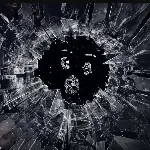Beneath the whole showiness and spectacularity the Matrix saga gave us between 1999 and 2003—in my opinion, the 2021 reboot attempt should be wiped from all human beings' minds—lies not only a pretty clear authorial message, but also, particularly, a much more important question that, after 25 years, still whirls in our unconscious mind:
What's the limit of artificial intelligence (AI) nowadays?
Essentially, Matrix is a cyberpunk reflection about consciousness—both of humans and machines—and the blurred line drawn between them. If we quickly move forward until present time, the creation of the Chinese AI DeepSeek and the debate on the accessibility of learning tools that can also foster the almost nonexistent development of the human brain invites us to reexamine these topics in the most tangible context that may exist: the real world. But what's the real world? I will try to avoid getting metaphysical and unravel what the Wachowski sisters tried to tell us a little over two decades ago…

The director sisters—which back then were actually brothers—presented a dystopian future in which humanity is enslaved by intelligent machines that consume humans—something pretty ironic if we think about how we consume technology and artificial intelligence nowadays—and that, at the same time, live a "double life" in a simulated reality known as the Matrix. Neo's journey has religious connotations due to Jesus' story and the savior idea, a sort of iteration, as Hugh Grant would say in Heretic. But the story's core and heart are always focused on exploring the limits the human consciousness can transcend within the Matrix, which allows humanity to manipulate this simulated world through sheer willpower and faith.
If we think about it for a minute, the Matrix itself, the concept behind the narrative, is a metaphor of the limitations of human perception. It suggests that our comprehension of reality is determined by our senses and cognitive processes, which can be easily manipulated. The movie poses some disturbing questions regarding the nature of consciousness: Is it purely a biological phenomenon or can it exist independently beyond our body? Can machines acquire a true consciousness or are they simple sophisticated or disguised thought simulations?

Today, I used DeepSeek for the first time with the sole purpose of asking how it was doing and why it didn't have feelings. Even though I asked the questions just to understand what type of answers it would give me and not out of naivety, I found myself before an unusual—I would even call it shocking—determination. Unlike the traditional AI models—like ChatGPT or some other I can't remember now—which are designed to carry out really specific tasks, DeepSeek is, according to its creator, designed to emulate thought processes similar to human ones, including reasoning, learning and even creativity.
The creation of this revolutionary—and, as a relevant fact, completely free—AI can bring up questions that echo the ones raised in the Matrix saga: Can an AI system achieve real consciousness or is it simply simulating human thinking? If having a conscience is the ability to perceive and interpret reality, does DeepSeek have a type of consciousness, even if it's fundamentally different from the human one, that can beat us some day regarding intelligence? The thought just gives me chills.

In Matrix, human thinking is seen as a powerful force capable of shaping simulated reality. It's suggested that reality isn't fixed—let's remember the famous "What is real? How do you define real?"—but rather a construction that can be altered through the power of the mind. DeepSeek's ability to process and analyze big data in microseconds reflects this concept in a technological context. By synthesizing information from different sources, DeepSeek can generate knowledge and solutions that transcend traditional human capacities. Are we doomed or can we keep peace with ourselves and what we are creating? In this sense, DeepSeek can be considered a new way of thinking.
Nonetheless, the question is still there: Is DeepSeek's "thinking" equivalent to human thinking or is it a fundamentally different phenomenon? This is the eternal battle between reason and emotion. We are deeply intertwined with feelings, experiences, memories and subjective perceptions, all of which shape our identity. Can an AI system, devoid of these human elements, truly replicate the depth and complexity of human consciousness? Today, I don't think so, but I'm not so sure either.

The concept of AI consciousness is a core topic both in the saga starring Keanu Reeves and in DeepSeek's development. In the movie, the machines controlling the Matrix are portrayed as sentient beings with their own motivations and wishes, even though they are frightening. They not only are just mere tools available to humans, but are rather shown as entities with a kind of consciousness that, even though it's different to ours, is 100% real. They want to destroy us, like we are currently destroying our planet. Thinking twice about it, we aren't that far from the world portrayed in Matrix.
Meanwhile, DeepSeek's developers face pretty similar questions while expanding the limits of their own creation. Can AI develop a sense of self-awareness or is it limited to the role of a sophisticated tool forever? If DeepSeek achieved consciousness, what would this mean for its relationship with humans? Would it be seen as a threat, an opponent, a friend or something completely new?

Despite the challenges and uncertainties, DeepSeek's development also offers exciting possibilities for the collaboration between humans and AI, just like Neo suggests at the end of the trilogy. "What do you want?" asks the huge machinery. "Peace," answers the messiah. The ability of the absolute protagonist of this saga to manipulate the simulated world turns out to be a metaphor for the creative potential and wit we have. Likewise, DeepSeek's ability to process and analyze big data could open new borders in science, medicine and art. Who says all is lost?
Let's imagine for a minute a future in which AI systems like DeepSeek work together with humanity to solve some of the most urgent problems of the world. I don't want to sound like a hypocrite, but issues ranging from climate change to even the eradication of serious diseases can maybe be addressed from other angles. The combination of human intuition and AI's speed and efficiency could lead to breakthroughs that once seemed unimaginable. Am I too naive? In this future, AI wouldn't be a threat, but a partner that could improve and broaden our skills to ask ourselves once again what are the limits of what's possible. As a lover of craftsmanship, my feelings are still kind of reluctant, but if I don't have hope, what else is left?

In the end, DeepSeek's dawn in the AI world and Matrix's story remind us that the line between humans and machines isn't that thin, but also isn't as thick as it seems. Both human thinking and AI consciousness are complex, multifaceted phenomena that challenge easy categorization and labels. In Morpheus' words:
"The Matrix is everywhere. It is the world that has been pulled over your eyes to blind you from the truth."
As we keep exploring the borders of AI consciousness with systems like the one I mentioned, we have to keep our eyes open to the truths—and possibilities—that await us. After all, Roy Batty would say: "Quite an experience to live in fear, isn't it?"
Posted on FEBRUARY 10, 2024, 15:22 PM | UTC-GMT -3
If you liked this article remember to give it a 👉 LIKE, put it in your FAVORITES, COMMENT 🗣️ , and FOLLOW ME for more movie and series content 📽




















































View replies 1
View replies 1